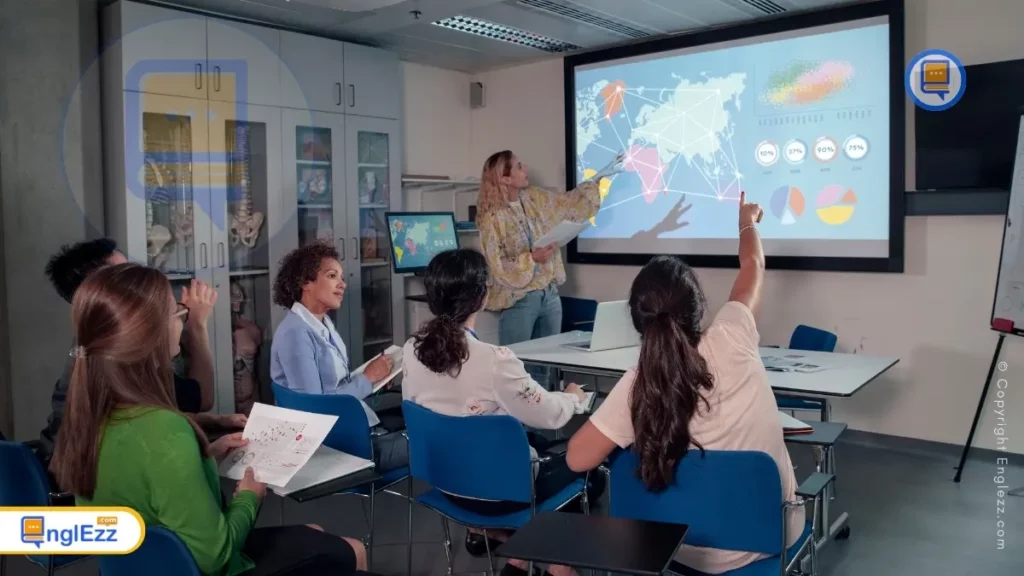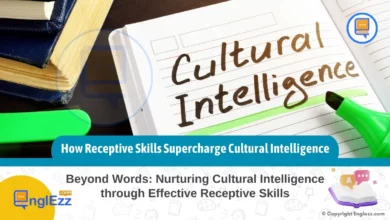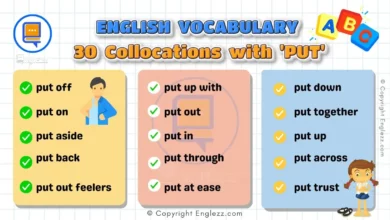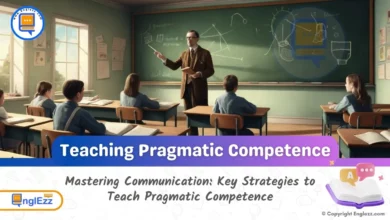As technology continues to develop and advance, so does the world of education. EdTech leaders are at the forefront of shaping the future of education by incorporating technology into the learning process. These leaders are not only creating innovative solutions to improve student outcomes, but also helping to bridge the digital divide and increase access to education for all students.
Table of Contents
- The Power of EdTech Leaders On Shaping the Future of Education
- Introduction to EdTech and its impact on education
- The role of EdTech leaders in shaping the future of education
- Characteristics of effective EdTech leaders
- Innovative technologies transforming the education landscape
- Examples of successful EdTech leaders and their contributions
- Overcoming challenges in implementing EdTech solutions
- Collaboration between EdTech leaders and educators
- The importance of continuous professional development for EdTech leaders
- Ethical considerations in EdTech leadership
- The ongoing evolution of EdTech and the role of leaders in driving its success
- Wrapping Up
The Power of EdTech Leaders On Shaping the Future of Education
From virtual classrooms and interactive textbooks to personalized learning and online assessments, EdTech leaders are transforming the way we approach education. In this post, we will explore the power of EdTech leaders and how their work is shaping the future of education. We will discuss the impact of their innovations, their successes and challenges, and how they are helping to improve student outcomes around the world.
Introduction to EdTech and its impact on education
Education technology, or EdTech, has revolutionized the way we learn and teach, reshaping the future of education. With the rapid advancement of technology, traditional educational methods are being complemented, enhanced, and even replaced by innovative digital tools and platforms. EdTech leaders are at the forefront of this transformation, driving change and shaping the future of education.

EdTech encompasses a wide range of technologies and applications that aim to improve learning outcomes, increase accessibility, and provide personalized learning experiences. From interactive online courses and virtual reality simulations to adaptive learning platforms and artificial intelligence-powered tutors, EdTech has opened up endless possibilities for educational institutions, teachers, and learners.
The impact of EdTech on education has been remarkable. It has broken down geographical barriers, allowing students from across the globe to access quality education and learn from renowned experts in various fields. It has also made learning more engaging and interactive, incorporating multimedia elements, gamification, and collaborative features that foster active participation and knowledge retention.
Moreover, EdTech has empowered educators by providing them with powerful tools and resources to create dynamic and customized learning experiences. Teachers can now leverage data analytics to track students’ progress, identify areas for improvement, and tailor instruction to individual needs. This personalized approach enhances student engagement, boosts academic performance, and promotes lifelong learning.
In addition, EdTech has played a crucial role in bridging the digital divide in education. By providing access to educational resources and platforms to underserved communities, it has leveled the playing field, ensuring that every learner, regardless of their socio-economic background, has equal opportunities to thrive academically.
The influence of EdTech leaders cannot be overstated. They are the visionary entrepreneurs, educators, and innovators who are driving the adoption of technology in education, developing cutting-edge solutions, and shaping the future of learning. Their expertise, passion, and dedication are transforming traditional classrooms into dynamic, learner-centered environments that prepare students for the challenges and opportunities of the digital age.
As we delve deeper into the world of EdTech, this blog series will explore the inspiring stories, strategies, and insights of these visionary leaders. We will examine the latest trends, discuss the challenges and opportunities, and highlight the transformative impact of EdTech on education. Join us on this journey as we uncover the power of EdTech leaders in shaping the future of education.
The role of EdTech leaders in shaping the future of education
EdTech leaders play a crucial role in shaping the future of education, revolutionizing traditional teaching methods and embracing the power of technology to enhance the learning experience. These visionary individuals are at the forefront of educational innovation, leveraging the latest advancements in technology to transform classrooms and educational institutions.
One of the key responsibilities of EdTech leaders is to identify and implement effective digital tools and platforms that can improve student engagement and outcomes. They understand the importance of personalized learning and how technology can be used to cater to individual student needs. By leveraging adaptive learning platforms, virtual reality, augmented reality, and other emerging technologies, these leaders are able to create immersive and interactive learning experiences that captivate students’ attention and foster deeper understanding of the subject matter.
Moreover, EdTech leaders recognize the need to bridge the digital divide and ensure equal access to educational opportunities for all students. They actively seek innovative solutions to overcome barriers such as limited internet connectivity or lack of devices in underserved communities. Through initiatives like digital literacy programs and partnerships with organizations, they strive to make technology accessible and inclusive, empowering students from diverse backgrounds to thrive in the digital age.
Another vital aspect of the role played by EdTech leaders is fostering a culture of continuous learning and professional development among educators. They facilitate training programs and workshops to equip teachers with the necessary skills and knowledge to effectively integrate technology into their classrooms. By providing ongoing support and resources, these leaders empower educators to embrace technology as a tool for enhancing instruction and student engagement, ultimately creating a more dynamic and collaborative learning environment.
Furthermore, EdTech leaders are instrumental in advocating for policy changes and reforms that support the integration of technology in education. They collaborate with policymakers, educators, and stakeholders to shape educational policies and ensure that the necessary infrastructure and resources are in place to drive digital transformation in schools and institutions. By actively participating in conversations about the future of education, they contribute to creating a supportive ecosystem that enables innovation and empowers educators to prepare students for the challenges and opportunities of the digital era.
In conclusion, EdTech leaders are catalysts for change in the education landscape. Their vision, passion, and expertise in leveraging technology have the power to revolutionize teaching and learning, creating a more inclusive, engaging, and effective educational experience. As they continue to shape the future of education, their impact will be felt by students, educators, and communities worldwide, paving the way for a brighter and more technologically advanced future.
Characteristics of effective EdTech leaders
Effective EdTech leaders possess a unique set of characteristics that enable them to shape the future of education. These leaders understand the power of technology and its potential to revolutionize the learning experience. They are not just tech-savvy individuals; they are visionaries who can navigate the ever-evolving landscape of educational technology.
One key characteristic of effective EdTech leaders is their ability to foster innovation. They embrace new ideas, technologies, and approaches, and encourage their teams to think creatively. They are always on the lookout for innovative solutions that can enhance teaching and learning outcomes.
Another important characteristic is their strong communication skills. EdTech leaders know how to effectively articulate their vision and ideas to various stakeholders, including educators, administrators, parents, and students. They can inspire others and gain their support by clearly conveying the benefits of incorporating technology into education.
Adaptability is also a critical trait of effective EdTech leaders. They understand that technology is constantly evolving, and they are ready to adapt and embrace change. They are not afraid to experiment with new tools and strategies, and they encourage their teams to do the same. They stay up-to-date with the latest trends and developments in the field, ensuring that their educational institutions remain at the forefront of technology integration.
Collaboration is another characteristic that sets effective EdTech leaders apart. They value teamwork and create an environment where diverse perspectives are welcomed. They collaborate with educators, IT professionals, and other stakeholders to design and implement effective EdTech initiatives. They understand that successful technology integration requires a collective effort and collaboration across departments and disciplines.

Lastly, effective EdTech leaders are lifelong learners themselves. They continuously seek opportunities for professional growth and development. They attend conferences, participate in webinars, and engage in ongoing professional learning communities. They stay informed about emerging technologies and pedagogical approaches, and use this knowledge to inform their decision-making.
By embodying these characteristics, effective EdTech leaders play a pivotal role in shaping the future of education. They inspire and empower educators, drive innovation, and create transformative learning experiences for students. They are the driving force behind the integration of technology into education, ensuring that students are equipped with the necessary skills and knowledge to thrive in a digital age.
Innovative technologies transforming the education landscape
In today’s rapidly evolving digital age, innovative technologies are revolutionizing the education landscape like never before. EdTech leaders are at the forefront of this transformation, harnessing the power of technology to shape the future of education.
One of the most significant advancements in EdTech is the integration of virtual reality (VR) and augmented reality (AR) into classrooms. These immersive technologies have the potential to transport students to different time periods, geographical locations, or even microscopic worlds, providing them with interactive and engaging learning experiences. Whether it’s exploring ancient civilizations, dissecting virtual organisms, or conducting virtual chemistry experiments, VR and AR are expanding the boundaries of traditional education.
Additionally, artificial intelligence (AI) is playing a pivotal role in personalized learning. AI algorithms analyze vast amounts of data to understand each student’s unique learning style, pace, and preferences. This enables educators to tailor their teaching methods and content to meet the specific needs of individual students, maximizing their learning outcomes. AI-driven adaptive learning platforms provide personalized recommendations, adaptive quizzes, and interactive content, fostering a more efficient and effective learning environment.
Furthermore, cloud computing has revolutionized the accessibility and collaboration in education. With cloud-based platforms, students and educators can access learning materials, collaborate on projects, and share resources from anywhere, at any time. This flexibility eliminates the limitations of physical classrooms, allowing for seamless remote learning and fostering a global network of learners.
Another transformative technology in the education sphere is gamification. By incorporating game elements into educational activities, such as quizzes, simulations, and challenges, students are motivated, engaged, and entertained while learning. Gamification enhances critical thinking, problem-solving skills, and promotes a positive learning experience overall.
These innovative technologies are not only transforming the way students learn but also empowering educators with powerful tools to enhance their teaching methods. EdTech leaders are continuously pushing the boundaries of what is possible in education, creating a future where learning is immersive, personalized, and accessible to all.
As the education landscape continues to evolve, it is crucial for educators, policymakers, and stakeholders to embrace these innovative technologies and collaborate with EdTech leaders to shape a future where education is truly transformative and empowers students to thrive in a dynamic and interconnected world.
Examples of successful EdTech leaders and their contributions
In the ever-evolving landscape of education, EdTech leaders play a crucial role in shaping the future of learning. These visionary individuals have not only identified the potential of technology in education but have also made significant contributions that have transformed the way we teach and learn. Here are a few examples of successful EdTech leaders and the impact they have made:
Salman Khan – Khan Academy:
Salman Khan, the founder of Khan Academy, is a pioneer in the field of online education. His platform offers free, high-quality educational content to learners of all ages. With a mission to provide a personalized learning experience, Khan Academy has become a go-to resource for millions of students worldwide.
Daphne Koller – Coursera:
Daphne Koller co-founded Coursera, a leading online learning platform that offers courses from top universities and institutions. Coursera’s innovative approach to online education has made it possible for learners around the globe to access high-quality education from prestigious institutions at their own pace.
Arne Duncan – Future Ready Schools:
Arne Duncan, former U.S. Secretary of Education, has been a strong advocate for integrating technology into classrooms. As the founder of Future Ready Schools, he has worked to ensure that educators have the support and resources needed to effectively use technology in teaching and learning.
Reshma Saujani – Girls Who Code:
Reshma Saujani is the founder of Girls Who Code, an organization dedicated to closing the gender gap in the tech industry. Through various programs and initiatives, Girls Who Code empowers young girls to pursue careers in technology and equips them with the necessary skills to thrive in a digital world.
Salim Ismail – Singularity University:
Salim Ismail is the co-founder of Singularity University, an institution that focuses on leveraging exponential technologies to address global challenges. Through their educational programs and innovation initiatives, Singularity University inspires and empowers leaders to create positive change in various fields, including education.
These EdTech leaders have demonstrated the power of technology in revolutionizing education. Their contributions have not only expanded access to quality learning opportunities but have also sparked innovation and transformed traditional educational models. By embracing their vision and insights, we can continue to shape a future where education is accessible, engaging, and tailored to the needs of every learner.
Overcoming challenges in implementing EdTech solutions
Implementing EdTech solutions in the education sector comes with its fair share of challenges. However, with the right approach and strategies, these challenges can be overcome, paving the way for a successful integration of technology in the classroom.
One of the common challenges faced is resistance to change. Teachers and administrators may be hesitant to adopt new technologies, fearing that it may disrupt traditional teaching methods or require a steep learning curve. To overcome this, it is crucial to provide comprehensive training and support to educators, demonstrating the benefits of EdTech solutions and how they can enhance student learning outcomes.
Another challenge is the digital divide, where students from marginalized communities may lack access to the necessary devices and internet connectivity. EdTech leaders play a crucial role in bridging this gap by advocating for equal access to technology and working towards providing resources to underserved areas. Collaboration with government organizations, nonprofits, and private sector partners can help address this challenge and ensure that all students have an equal opportunity to benefit from EdTech solutions.
Data security and privacy concerns are also significant challenges in implementing EdTech solutions. With the collection and storage of student data, it is essential to have robust security measures in place to protect sensitive information. EdTech leaders must prioritize data protection and work closely with schools and districts to develop and implement strict privacy policies and protocols.
Lastly, financial constraints can hinder the adoption of EdTech solutions, especially for schools with limited budgets. EdTech leaders can help overcome this challenge by seeking out funding opportunities, advocating for increased investment in educational technology, and showcasing the long-term cost savings and benefits that technology integration can bring.
By acknowledging and addressing these challenges head-on, EdTech leaders can pave the way for a future where technology plays a transformative role in education, empowering both educators and students to thrive in a digital age.
Collaboration between EdTech leaders and educators
Collaboration between EdTech leaders and educators is a powerful force that can shape the future of education. As technology continues to evolve at a rapid pace, it is crucial for these two groups to work hand in hand to harness the full potential of educational technology and create meaningful learning experiences for students.
EdTech leaders bring their expertise in technology and innovation to the table. They are constantly exploring new tools, platforms, and approaches to enhance teaching and learning. By collaborating with educators, they gain valuable insights into the challenges and needs of the classroom. This collaboration allows them to develop solutions that are practical, effective, and tailored to the specific requirements of educators and students.

On the other hand, educators bring their deep understanding of pedagogy and the learning process. They have firsthand experience in the classroom and know what works best for their students. By working with EdTech leaders, they can share their expertise and provide valuable feedback on the usability, functionality, and impact of educational technology tools. This feedback loop is essential for continuous improvement and refinement of these tools, ensuring that they meet the needs of both educators and students.
Collaboration between EdTech leaders and educators also fosters a culture of innovation and experimentation in the education sector. By working together, they can push the boundaries of traditional teaching methods and explore new possibilities for engaging, interactive, and personalized learning experiences. This collaboration encourages educators to embrace technology as a powerful tool for enhancing teaching and learning, rather than a threat to their profession.
Furthermore, the collaboration between EdTech leaders and educators can lead to the development of best practices and guidelines for incorporating technology in the classroom. By sharing their successes, challenges, and lessons learned, they can support and inspire other educators to leverage technology effectively. This collective knowledge and experience can fuel a broader movement towards digital transformation in education, ultimately benefiting students around the world.
In conclusion, collaboration between EdTech leaders and educators is a critical element in shaping the future of education. By leveraging their respective expertise and working together, they can drive innovation, improve teaching and learning, and empower students with the skills and knowledge they need to thrive in the digital age. Together, they have the power to revolutionize education and create a brighter future for generations to come.
The importance of continuous professional development for EdTech leaders
Continuous professional development (CPD) plays a crucial role in shaping the future of education through EdTech leadership. In such a rapidly evolving field, it is essential for EdTech leaders to stay updated with the latest trends, advancements, and best practices. CPD provides them with the opportunity to enhance their knowledge, skills, and expertise, enabling them to effectively navigate the ever-changing landscape of educational technology.
One of the key benefits of CPD for EdTech leaders is the ability to stay ahead of the curve. By actively participating in workshops, conferences, webinars, and other professional development activities, these leaders can stay informed about emerging technologies, innovative teaching methods, and pedagogical approaches. This knowledge empowers them to make informed decisions and implement effective strategies that positively impact students’ learning experiences.
Additionally, CPD allows EdTech leaders to network and collaborate with like-minded professionals. Engaging in discussions, sharing ideas, and collaborating on projects not only expands their professional network but also fosters a collaborative culture within the EdTech community. Through these interactions, leaders can gain valuable insights, learn from others’ experiences, and discover new perspectives that can further enhance their leadership abilities.
Furthermore, CPD helps EdTech leaders to develop and refine their leadership skills. It provides opportunities for them to engage in reflective practice, self-assessment, and goal setting. By actively seeking out professional development opportunities, leaders can identify areas for improvement and work towards enhancing their leadership competencies. This continuous growth and development enable them to effectively lead their teams, drive innovation, and inspire positive change in the education sector.
In conclusion, continuous professional development is vital for EdTech leaders as it empowers them to shape the future of education. By staying informed, networking, and refining their leadership skills, these leaders can make informed decisions, drive innovation, and create transformative learning experiences for students. Embracing CPD ensures that EdTech leaders remain at the forefront of educational technology, enabling them to navigate the dynamic landscape of education and make a meaningful impact on the future of learning.
Ethical considerations in EdTech leadership
When it comes to EdTech leadership, ethical considerations play a crucial role in shaping the future of education. As technology continues to revolutionize the way we teach and learn, it is essential that those in leadership positions prioritize ethical practices to ensure the well-being and success of students.
One of the key ethical considerations in EdTech leadership is data privacy and security. With the collection and storage of vast amounts of student data, it is imperative that leaders prioritize the protection of this information. This includes implementing robust security measures, obtaining proper consent, and adhering to relevant data protection laws and regulations.
Another ethical consideration is ensuring equal access to technology and educational resources. EdTech leaders have the responsibility to bridge the digital divide and ensure that all students, regardless of their socioeconomic background, have equal opportunities to benefit from educational technology. This may involve providing devices, internet access, and training to underserved communities to level the playing field.
Furthermore, EdTech leaders must be mindful of the potential biases and discriminatory practices that can arise from the use of technology in education. Algorithms and artificial intelligence systems used in educational platforms should be designed with fairness and inclusivity in mind. It is crucial to regularly assess and address any biases that may perpetuate inequalities or reinforce stereotypes.
Additionally, EdTech leaders should consider the ethical implications of personalized learning and data-driven decision-making. While personalized learning can enhance individual student outcomes, it is important to strike a balance between data-driven insights and the holistic development of students. Leaders should prioritize the well-rounded education of students, promoting critical thinking, creativity, and social-emotional skills alongside academic achievements.

In conclusion, ethical considerations in EdTech leadership are paramount to ensure that technology is harnessed responsibly and in the best interest of students. By safeguarding data privacy, promoting equal access, addressing biases, and prioritizing holistic education, EdTech leaders can shape a future of education that is inclusive, equitable, and beneficial to all learners.
The ongoing evolution of EdTech and the role of leaders in driving its success
In conclusion, the field of EdTech is experiencing a continuous evolution that shows no signs of slowing down. The advancements in technology have opened up endless possibilities for transforming education and enhancing learning experiences for students worldwide. However, the success of EdTech relies heavily on the leaders who drive its implementation and growth.
EdTech leaders play a crucial role in shaping the future of education. They are the visionaries who see the potential of technology in revolutionizing traditional teaching methods. These leaders have a deep understanding of both the educational landscape and the latest technological trends, allowing them to bridge the gap between the two and create innovative solutions.
The role of EdTech leaders goes beyond simply introducing new tools and platforms. They must also be adept at fostering collaboration among teachers, administrators, and other stakeholders to ensure seamless integration of technology into the curriculum. By providing ongoing support, training, and resources, these leaders empower educators to embrace EdTech and leverage its full potential.
Furthermore, EdTech leaders must stay updated with the latest research and best practices in educational technology. This allows them to make informed decisions and implement strategies that have been proven to enhance learning outcomes. By staying at the forefront of the field, these leaders can inspire and guide others towards effective EdTech implementation.
In this fast-paced digital era, the future of education relies on the collective efforts of EdTech leaders. Their ability to drive innovation, foster collaboration, and stay informed about emerging trends will determine the level of success achieved in integrating technology into classrooms worldwide.
As we embrace the power of EdTech and its potential to revolutionize education, let us recognize and support the leaders who are at the forefront of this transformation. By investing in their professional development and creating a culture of innovation, we can collectively shape the future of education and provide students with the skills and knowledge needed to thrive in the digital age.
Wrapping Up
The power of EdTech leaders cannot be underestimated when it comes to shaping the future of education. As technology continues to advance at a rapid pace, it is crucial for these leaders to step up and guide the way in integrating educational technology effectively in classrooms.
By leveraging their expertise, passion, and innovative thinking, they have the potential to revolutionize the way students learn, teachers teach, and educational institutions operate. With their vision and dedication, the future of education is bright, promising, and filled with endless possibilities. Let us embrace the power of EdTech leaders and work together to create a better and more inclusive educational landscape for generations to come.









The Power of EdTech Leaders On Shaping the Future of Education – Join us to learn how top innovators are paving new paths for tomorrow’s learners!